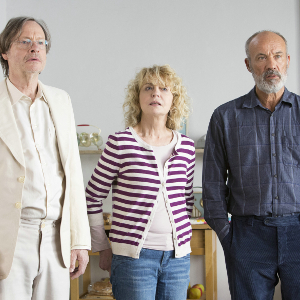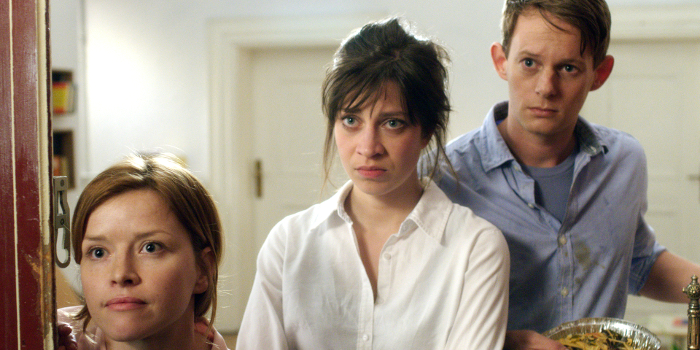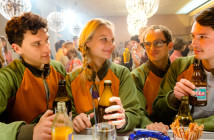Wir sind die Neuen (2014)
Cast: Gisela Schneeberger, Heiner Lauterbach, Michael Wittenborn
Director: Ralf Westhoff
Country: Germany
Genre: Comedy
Editor’s Notes: The following review is part of our coverage of the Munich International Film Festival. For more information visit filmfest-muenchen.de/en and follow the Filmfest München on Twitter at @filmfestmunich.
Shared living arrangements are mostly common among the younger generation, especially among students who split the costs of otherwise unaffordable apartments. Ralf Westhoff however, the writer, director and producer of Wir sind die Neuen or “We Are the New People”, introduces his audience to an unusual flat share that clashes with the norm. The comedy, shown in the New German Cinema section of the festival, focuses on the cultural gap between two different generations and concentrates on their opposing values and expectations when a 20-something student flat is confronted with a 60-something living community.
The merging of these opposing characters creates many comical situations, further highlighted by the very trenchantly written script, poking on either the younger or the older generation without causing too much harm yet mocking certain circumstances.
Wir sind die Neuen first introduces the characters of the older generation and opens with good-natured Anne (Gisela Schneeberger), a recently divorced, single woman in her early 60s who has to move out of her apartment when rental prices are about to explode. Because of her low income she is unable to pay her rent any longer and is forced to make room for a young, apparently wealthy student – a first hint of the upcoming generational conflict. Therefore, she has to look for cheaper places in unattractive areas or, God forbid, move to the suburbs. Her desperate search for a new place leads Anne to reconnect with her former flatmates, revolutionary and opinionated Eddi (Heiner Lauterbach) and left-wing Johannes (Michael Wittenborn). Since all three of them find themselves in similar situations, they reestablish their former student flat share and rehash the past drinking wine, talking and even partying until late at night. Yet, they have to realize that their lifestyle is not accepted by everyone in their apartment building.
The film then introduces the younger generation, characterized by the square, overachieving students Katharina (Claudia Eisinger), Thorsten (Patrick Güldenberg) and Barbara (Karoline Schuch). Overwhelmed and overworked, the three actual students are in the midst of their exam period and annoyed by their new neighbors, the elderly flat share one floor below them. It does not take too long until the two opposing communities quarrel with each other because neither understands the behavior and values of the other.
The merging of these opposing characters creates many comical situations, further highlighted by the very trenchantly written script, poking on either the younger or the older generation without causing too much harm yet mocking certain circumstances. Too busy with studying for exams, the students for example refuse to play Frisbee with Johannes and start making fun of him and his age. The tide has turned however when Thorsten, sitting at his desk all day, hurts his back related to the lack of physical activity and walks around the apartment like an 80 year old.
…Wir sind die Neuen suggests that both generations can learn some valuable lessons from each other if they are willing to communicate.
Westhoff subtly raises various questions in terms of the character’s behaviors. While the students seem to be rather grown-up and focused on their careers, the members of the older generation seem to have lost track of time. Both of them are unwilling or even unable to understand the other. Nevertheless as it turns out, Wir sind die Neuen suggests that both generations can learn some valuable lessons from each other if they are willing to communicate.
The clash of those two generations is explained by Westhoff through contrasting the ideals of the former revolutionary students of the 1968 movement with the fast pace of our contemporary times and highlights current issues including poverty of the elderly as well as exploding rental prizes in German cities but also the disadvantages of the adjustments concerning the educational system and its changes made from the more individualistic approach to the controlled and organized Bachelor and Master system. To understand the actions of both generations, Westhoff suggests taking a look at each generation’s circumstances such as the economic and social situation they have grown up to live in.
Wir sind die Neuen is a comical take on the clash of two generations while also criticizing current social developments in our contemporary fast paced society.




